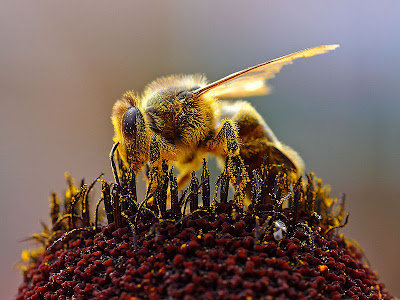Good morning,
Whitewater’s forecast calls for a mostly sunny day with a high temperature of twelve degrees.
In the City of Whitewater, the Urban Forestry commission meets from 4:15 p.m. to 6 p.m. The agenda is available online.
Update: A reader kindly writes that, in fact, this wasn’t a traditional leaked document, but a public one. For more about pesticides and honeybees, she suggests this link:
Over at Wired, there’s a story about a whistleblower’s memo entitled, “Leaked Memo Shows EPA Doubts About Bee-Killing Pesticide:”
Over the concerns of its own scientists, the Environmental Protection Agency continues to approve a controversial pesticide introduced to U.S. markets shortly before the honeybee collapse [up to 1/3 of colonies have disappeared], according to documents leaked to a Colorado beekeeper….
The memo, obtained by Colorado beekeeper Tom Theobald and publicized by the Pesticide Action Network, was written in November by scientists from the EPA?s Environmental Fate and Effects Division, who are considering Bayer?s request to use clothianidin in cotton and mustard. They describe how a key Bayer safety study used by the EPA to justify its original clothianidin approvals, which were granted before the study was actually conducted, was sloppily designed and poorly run, making it a ?supplemental? resource at best.”
The memo is available online at the Pesticide Action Network.
Note well, that from the point of view of the EPA, the leaked memo might constitute disloyalty to the EPA on the part of the agency employee who leaked it.
For state workers, Wisconsin, for example, has a whistleblower law specifically to prohibit state government from initiating, administering, or threatening to take retaliatory action if a state employee discloses violation of state or federal law, rule, or regulation, mismanagement or abuse of authority, substantial waste of public funds or a danger to public health or safety. The the law sets out the protections offered and requirements to obtain those protections. See, Wisconsin Statutes. sec. 230.80, et seq.

